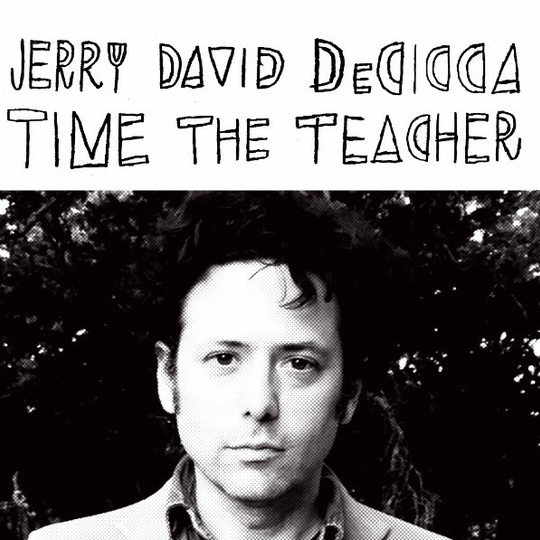Jerry David Decicca’s tempered tunes are the antidote to postmodern overload. On his homepage he appears at once ragged and homely, like a modern day Henry David Thoreau equipped with crisp blue jeans. Fittingly, the inspiration for DeCicca’s Time the Teacher came about in one of those now universal periods of unrest. Working with producers Jeb Loy Nichols and Benedic Lamdin, DeCicca was possessed by the clattering of the modern world to dial back and tap into the soulful roots of his Texan heritage. Having run the gamut of singer-songwriter folk styles with 2014’s Understanding Land, DeCicca and friends wielded a collection of acoustic bass, saxophone, and piano to unearth a sound that is both eerie and sensual.
There are religious overtones and undertones coursing throughout the album. DeCicca sounds like a man bathing in serenity on the title track, as an impassioned gospel choir provides a stirring backdrop. 'Watermelon' is a hodgepodge of seemingly nonsense lyrics and tinges of melodic jazz that when combined unfold almost like a catchy television jingle. DeCicca appears to be invoking the lyrical pastiche of Brian Wilson’s Smile-- infusing childish singalong poetics with subtle yet complex sonic overtures that render them all the more ripened.
'Grandma’s Tattoo' unfurls almost as if DeCicca is creating figurative imagery spontaneously, in a sort of tranquil stream of consciousness, but the lyrics themselves clearly hint at something more. Although the subject matter seems rather prosaic, the sentimentality behind every word seems to concurrently represent an actual figure in DeCicca’s life (most likely his own grandma) but also anyone that has attempted to take personal ownership of the light society paints them in. Nestled in his subdued delivery, there seems to be a poet both admiring of 'grandma' and yet somewhat pessimistic about her mission, as if her efforts at reinvention are entirely futile in the grand scheme of things.
A mammoth degree of expansiveness is suffused through Time the Teacher. It’s almost as if meaning is ingrained in every chord and utterance. “Mustang Island” is a sublime marriage of DeCicca’s range, fusing melancholic chords with dream pop and elegiac lyrics. As is his custom, the music is sparse while the vocals are laced with a sort of kaleidoscopic density. In their ever unfurling context, DeCicca’s songs are a mixture of both private musings and observations of the world at large, often gift-wrapped in scrupulous detail. 'Woodpecker' is a sentimental ballad cloaked in a stern and wistful pensiveness about the futility of life. It’s without a doubt one of the most beautifully haunting moments on the album.
More so than traditional albums, the bittersweet crux of Time the Teacher is that the music must be consumed in one fell swoop. Skipping tracks or playing them each in solitary fashion will cheat the album out of its full resplendence. This amounts to a challenging listen at times, as DeCicca aims for a captivating audience completely fixed with his plodding anecdotes. Rounding out the closing moments is 'I Didn’t Go Outside Today', a plaintive melody featuring penciled in bursts of acoustic guitar. The final track, 'The Other Side', is another seemingly spiritual earmark of a song representing an idyllic paradise that all walks of life must strive for. Severe and melodic, Time the Teacher is a shapely journey to the byzantine innards of DeCicca’s mind.
-
7Kellan Miller's Score























